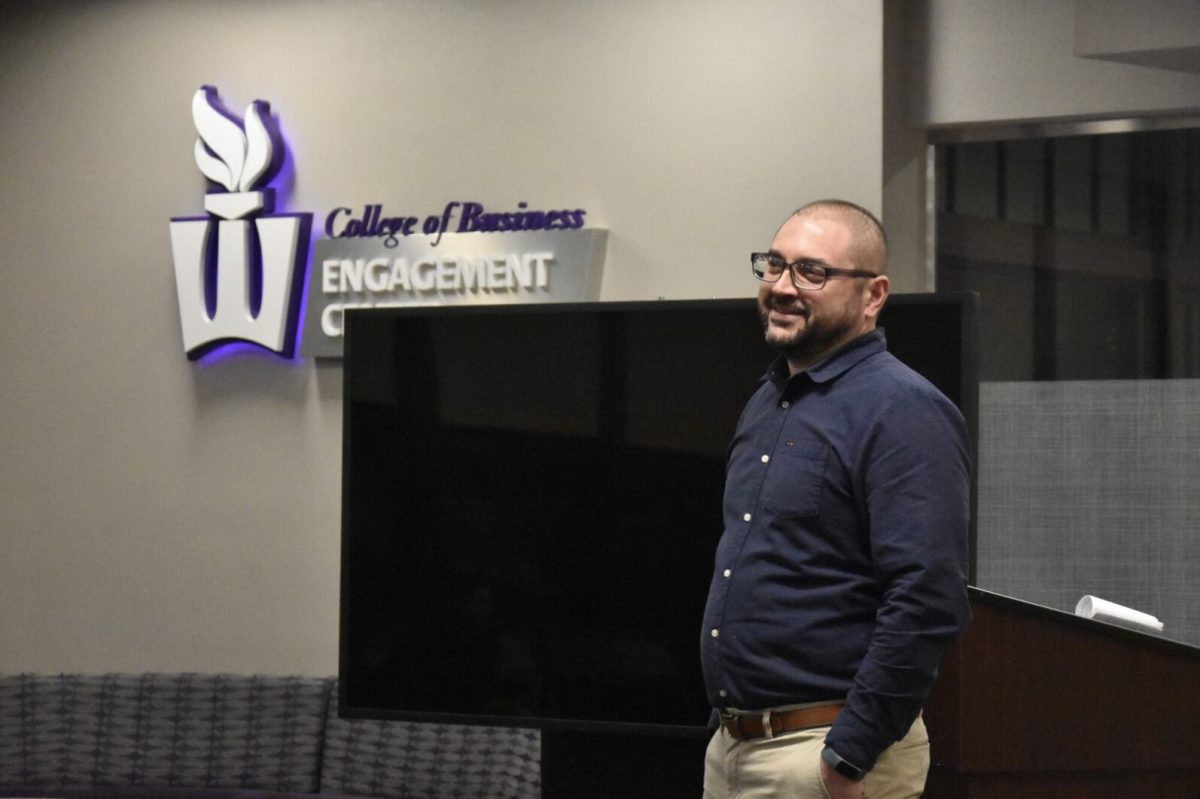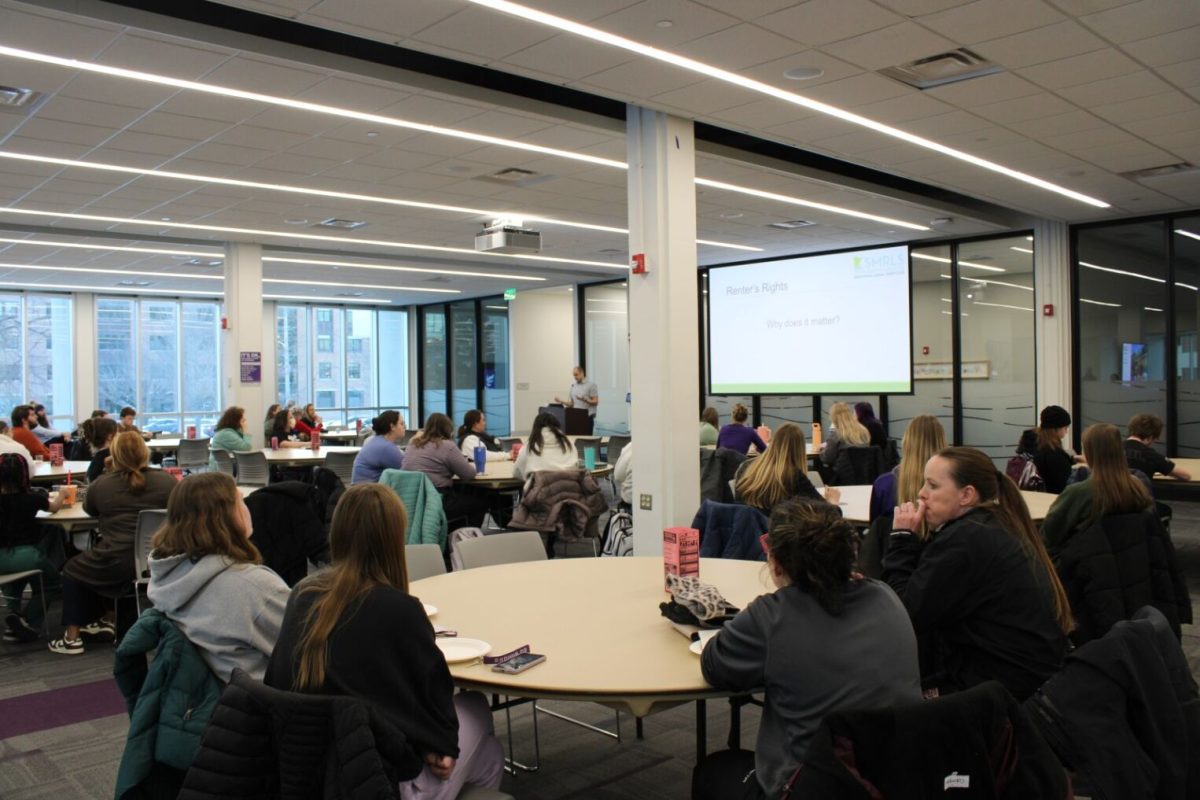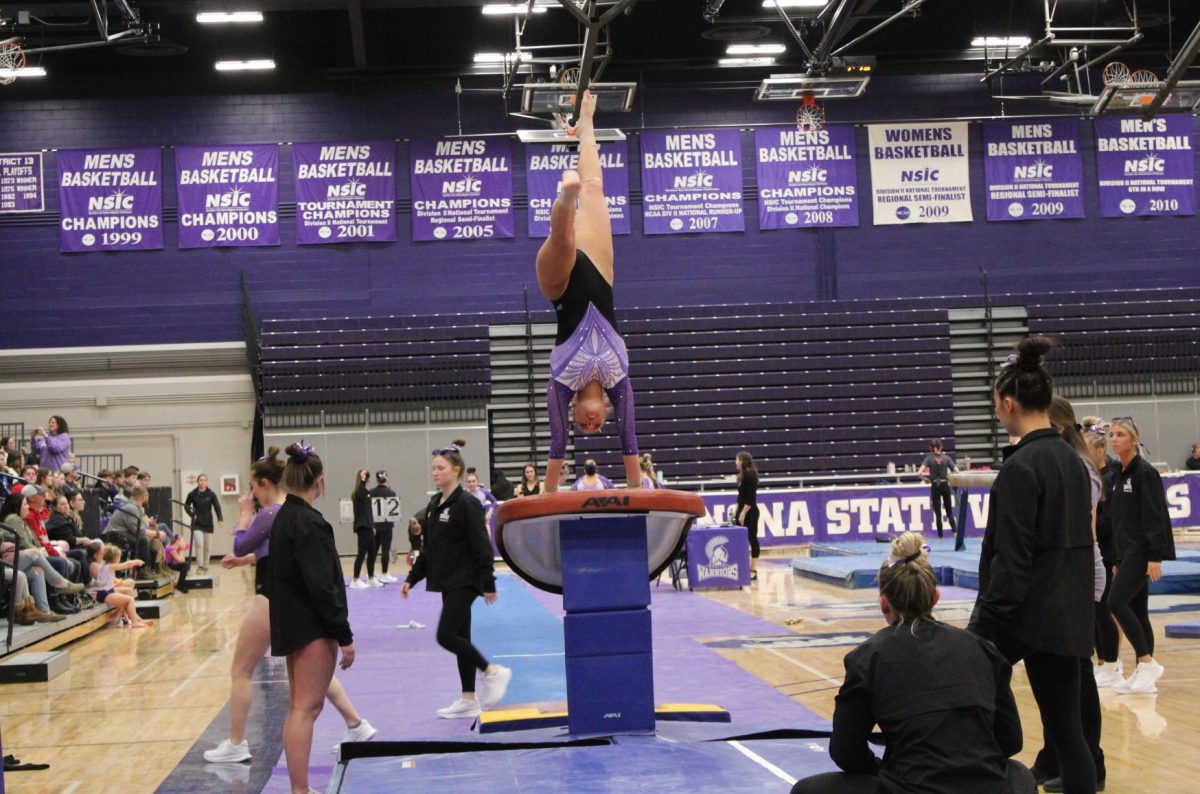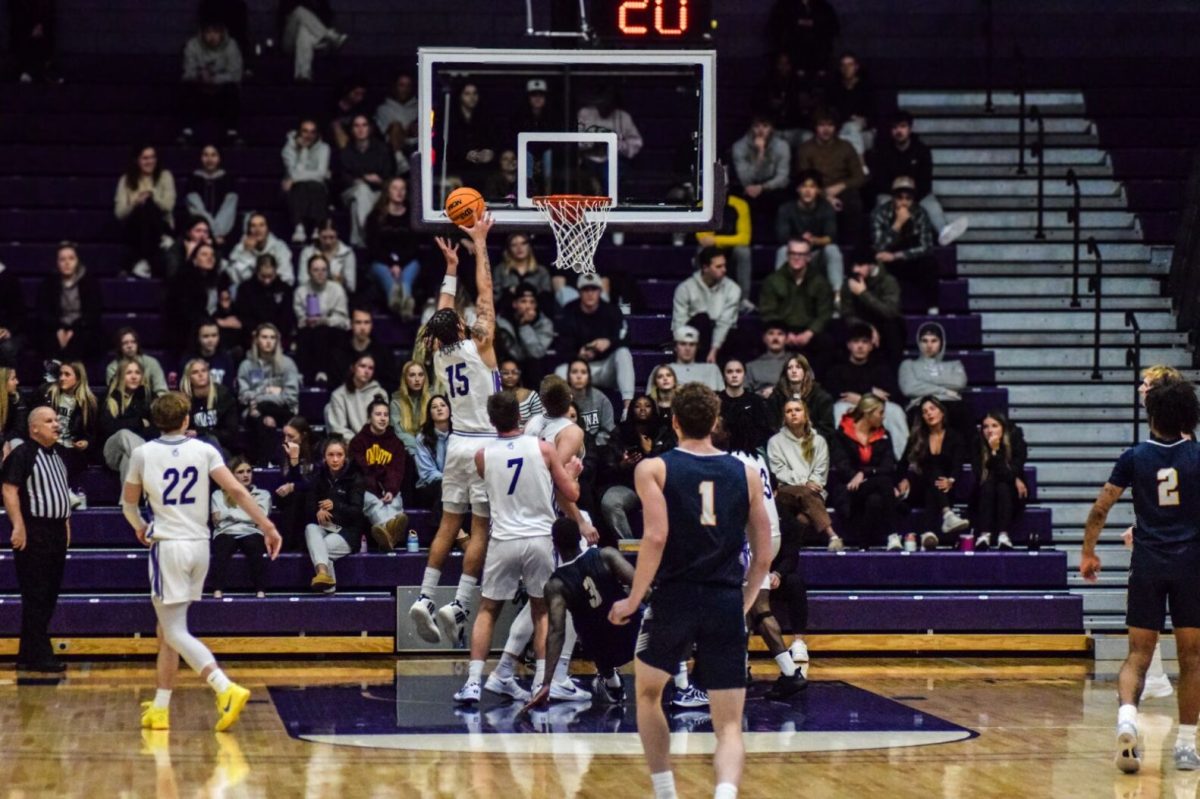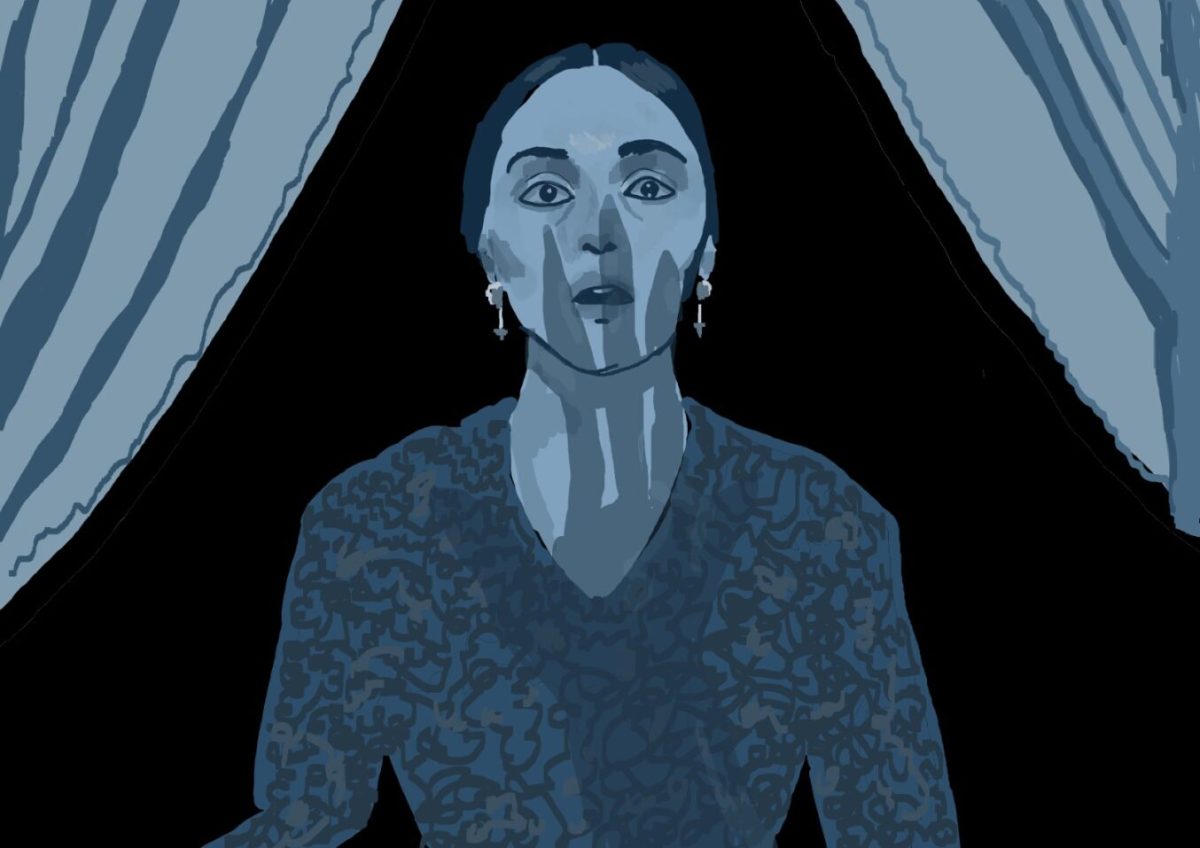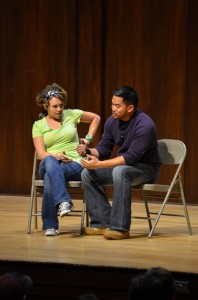
Lindsay Miller/Winonan
Brent Quam/Winonan
Sex Signals performers Courtney Abbott and Pogi Sumangil put students in awkward positions on the evening of Tuesday, Nov. 13.
For an hour and a half, Abbott and Sumangil swore, laughed, as they explained why rape is more than a trench coat in a dark alley. They also argued sex is a great idea, when both participants are into it.
“I felt really awkward the whole time,” said one student, “but I think I learned a lot. Rape and rapists, for example, aren’t really what TV makes them out to be.”
Roughly one hundred students attended the Somsen Auditorium performance. Students were gently directed to the center tier of seats. Stop signs were taped to all the seats, the purposes of which were explained as Abbott and Sumangil began their second sketch.
“Hold up your stop sign when you think someone, anyone, should put a stop to what you’re seeing,” Abbott told the audience.
Abbott took on the role of a young woman seated alone at a party. Sumangil was a young man at the party who approached the young woman and proceeded to make her plainly uncomfortable with his increasingly overt and offensive sexual advances. Stop signs began going up as soon as Sumagil put his arm around Abbott. Abbott’s character was not enjoying the attention, but didn’t know how to extract herself from the situation.
“Raise your hand if you have ever prevented a situation like this or done something about it,” Sumangil said. A few scattered hands went up.
“Why not?”
What followed was the section of the act devoted to explaining the cock-block; when it’s okay, and when it isn’t.
When Sumangil and Abbott weren’t making dirty jokes or making their audience feel incredibly awkward, the two performers explainined in greater depth what everyone in the room really already knew, or thought they did, about initiating consensual sex.
The performers used as an example a young man accused of rape by a girl who had invited him over to study. The young man was invited (Sumangil) to defend himself on a talk show, with Abbott as host. Students asked Sumangil questions, and it developed that Sumangil’s character and his alleged victim had been drinking, that they had both taken their clothes off, and that the two had been kissing, wrestling, and tickling each other.
In the midst of all this, when Sumangil’s character initiated intercourse, he admitted, the girl initially refused, and then seemed to give in.
Abbot’s and Sumangil’s point here, and perhaps the most pressing point of the performance, was that nothing says consent like ‘Yes.’
The most meaningful moments during the performance came when students participated, though.
At one point, Abbott asked, “Why isn’t abstinence any defense against rape?” After a brief pause for thought, a student raised his hand.
“Rape doesn’t ask permission,” he said.
“Couldn’t have said it better myself,” Sumangil said. Abbott and Sumangil also tackled misconceptions about expectations for men and women, how consent cannot be implied or be obtained from someone intoxicated, and how best to obtain consent.
“I’ll give you a hint,” Sumangil said. “That sound that girls make when puppies are around? That’s a good sign.”
Contact Brent at BQuam09@winona.edu



